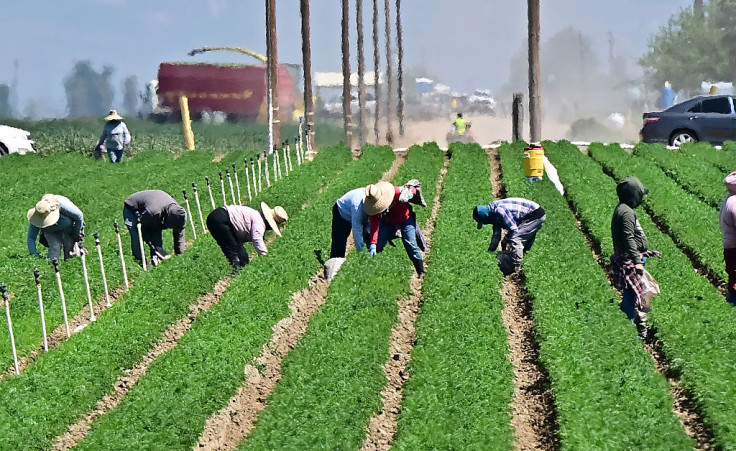
As Immigration and Customs Enforcement (ICE) workplace raids increase, industries that heavily rely on migrant workers are left scrambling with how to respond to heightened tensions, confusion and fears from their employees.
The new waves follow a week of nationwide anti-ICE protests, but also a decision from the administration to reverse a previous policy that paused raids at farms, meatpacking plants, hotels and restaurants.
"To see such a quick overturn, I think, was disheartening for many. A lot of these businesses and trade associations that need workforce solutions have been very supportive of the administration," Jenny Murray, president of the National Immigration Forum, an advocacy organization that represents Fortune 500 companies on Capitol Hill, told The Washington Post. "That'll be something they continue to be disappointed about for a while."
Last week, ICE officials reportedly told staff in an internal email to largely lay off raids and arrests in the agricultural, hotel and restaurant industries. However, the pause did not last long. By Sunday, Trump had publicly reversed his previously proposed policy entirely, ordering agents via a Truth Social post to deliver what he called the "single largest Mass Deportation Program in History"— focusing particularly on America's largest cities, almost all being run by Democrats.
By Tuesday, the workplace raids were seemingly back on track, when ICE agents raided Delta Downs, a horse racing track in Vinton, Louisiana, rounding up nearly 100 equine caretakers, some of whom fled the scenes as drones swarmed overhead, according to Eric J. Hamelback, chief executive of the National Horsemen's Benevolent and Protective Association.
Undocumented immigrants make up 4.6% of the U.S. workforce— more than 7 million people. Many of them work in agriculture, hospitality and construction, The Guardian reports.
Following the administration's pause on the raids, the United Farm Workers union, which represents a large number of immigrant workers, said the decision made little difference, as long as farm workers' communities are still being raided. UFW President Teresa Romero said that as long as immigration enforcement continues where farmworkers live, "some farmworkers will be detained and deported."
"As long as Border Patrol and ICE are allowed to sweep through farm worker communities making chaotic arrests the way they did TODAY, they are still hunting down farm workers," UFW posted on Instagram on Saturday. "If President Trump is actually in charge, he needs to prove it."
The recent flip-flopping on targeting key workers shows two contrasting visions of the MAGA movement and its plans to curb down immigration, The Washington Post noted. On one hand, Miller, an architect of Trump's aggressive immigration policy, has privately opposed carving out exceptions for certain industries that rely heavily on workers without legal status. On the other hand, Brooke Rollins, the agriculture secretary, stressed to Trump the concerns that farming industry leaders have raised about threats to their workforce.
"Severe disruptions to our food supply would harm Americans," Rollins posted on social media. "It took us decades to get into the mess and we are prioritizing deportations in a way that will get us out."
© 2025 Latin Times. All rights reserved. Do not reproduce without permission.




